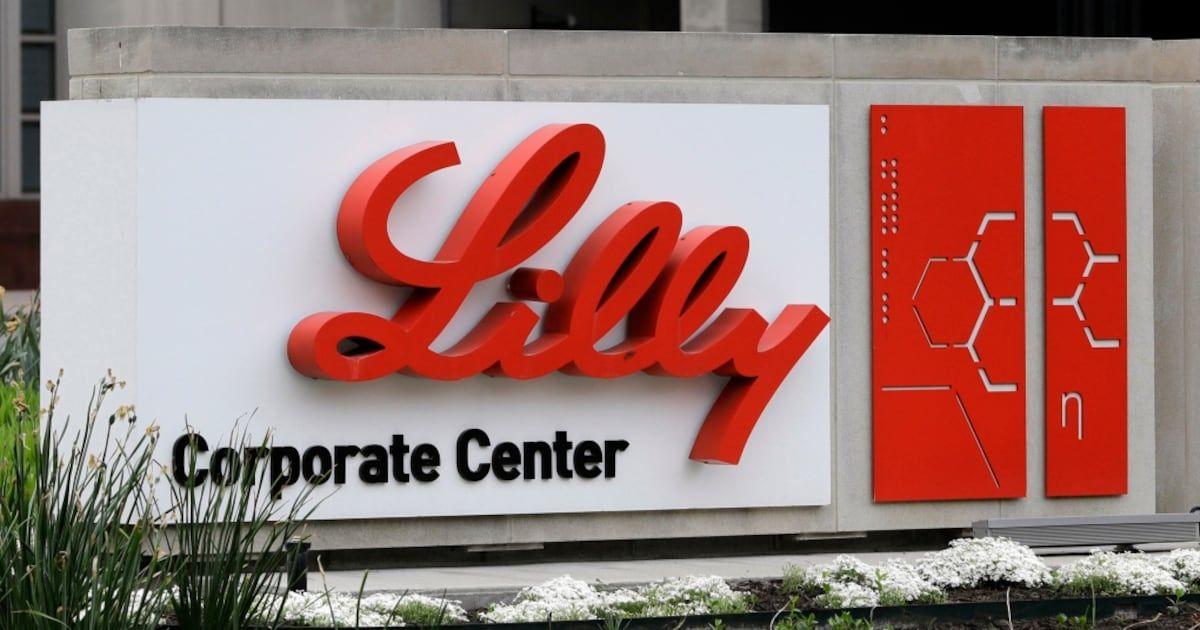Eli Lilly Signs $1.3 Billion AI-Driven Deal with Superluminal for Obesity Drug Discovery
4 Sources
4 Sources
[1]
Lilly signs $1.3 billion deal with Superluminal to discover obesity medicines using AI
Aug 14 (Reuters) - Eli Lilly (LLY.N), opens new tab has signed a deal worth $1.3 billion with privately held Superluminal Medicines to discover and develop small-molecule drugs through AI to treat obesity and other cardiometabolic diseases. Lilly currently dominates the obesity treatment market, which is estimated to be worth $150 billion by the next decade, and is trying to strengthen its foothold in the space through the development of next-generation drugs, acquisitions and partnerships. The deal gives Lilly access to Superluminal's proprietary artificial-intelligence-driven platform to rapidly discover potential drug candidates targeting G-protein-coupled receptors (GPCR) - a class of proteins that can influence a range of physiological processes including metabolism, cell growth and immune responses - the drug developer said on Thursday. In a similar move, Danish rival Novo Nordisk (NOVOb.CO), opens new tab struck a $2.2 billion deal with U.S. biotech Septerna in May to develop oral small-molecule medicines targeting GPCRs for obesity and other cardiometabolic diseases. Lilly has been capitalizing on the overwhelming popularity of the GLP-1 class of medicines, which includes its blockbuster drug Zepbound as well as Novo's Wegovy. It is also developing a keenly watched oral GLP-1 drug, orforglipron, which has failed to meet investors' lofty expectations. The drugmaker teamed up with Hong Kong-listed biotech Laekna (2105.HK), opens new tab last year to develop an experimental obesity drug that aims to help patients lose weight while preserving muscle. Lilly will receive exclusive rights to develop and commercialize drug candidates discovered using Superluminal's platform, the drug developer said. As part of the deal, Superluminal is eligible to receive upfront and milestone payments, an equity investment as well as tiered royalties on net sales, the company said. Boston-based startup Superluminal is developing a wholly owned lead candidate targeting a protein called melanocortin 4 receptor to treat certain rare, genetic forms of obesity and is expected to begin human trials next year. The lead candidate is not part of the deal with Lilly. Superluminal is backed by investors including RA Capital Management, Insight Partners and NVentures, NVIDIA's venture capital arm. Reporting by Mariam Sunny in Bengaluru; Editing by Pooja Desai Our Standards: The Thomson Reuters Trust Principles., opens new tab
[2]
Lilly Signs $1.3 Billion Deal to Discover Obesity Medicines Using AI
Eli Lilly has signed a deal worth $1.3 billion with privately held Superluminal Medicines to discover and develop small-molecule drugs through AI to treat obesity and other cardiometabolic diseases. Lilly currently dominates the obesity treatment market, estimated to be worth $150 billion by the next decade, and is trying to strengthen its foothold in the space through the development of next-generation drugs, acquisitions and partnerships. The deal gives Lilly exclusive rights to develop and commercialize drug candidates discovered using Superluminal's proprietary AI-driven platform targeting G-protein-coupled receptors (GPCR) - a class of proteins that can influence physiological processes including metabolism, cell growth and immune responses - the drug developer said on Thursday. Drugmakers including Danish rival Novo Nordisk are exploring potential GPCR targets to develop oral small-molecule drugs for obesity. "GPCRs have established themselves as very important targets in the obesity and cardiometabolic landscape, but we're at the very early stages of exploration of the target class," Superluminal CEO Cony D'Cruz told Reuters. Novo struck a $2.2 billion deal with U.S. biotech Septerna in May to develop small-molecule therapies directed at select GPCR targets. Lilly has been capitalizing on the overwhelming popularity of the GLP-1 class of medicines, including its blockbuster drug Zepbound as well as Novo's Wegovy. It is also developing a keenly watched oral GLP-1 drug, orforglipron, which has failed to meet investor expectations. The drugmaker teamed up with Hong Kong-listed biotech Laekna last year to develop an experimental obesity drug that aims to help patients lose weight while preserving muscle. As part of the deal, Superluminal is eligible to receive upfront and milestone payments, an equity investment as well as tiered royalties on net sales, the company said. Boston-based startup Superluminal is developing a wholly owned lead candidate targeting a protein called melanocortin 4 receptor to treat certain rare, genetic forms of obesity and is expected to begin human trials by fourth quarter next year. The lead candidate is not part of the deal with Lilly. Superluminal is backed by investors including RA Capital Management, Insight Partners and NVentures, NVIDIA's venture capital arm. Reporting by Mariam Sunny in Bengaluru; Editing by Pooja Desai. The preferred-rate deadline for the 2025 Inc. Best in Business Awards is this Friday, August 15, at 11:59 p.m. PT. Apply now.
[3]
Eli Lilly Strikes $1.3 Billion Deal With Superluminal To Develop AI-Driven Obesity Drugs - Novo Nordisk (NYSE:NVO), Eli Lilly (NYSE:LLY)
Eli Lilly and Co LLY has entered into a $1.3 billion deal with Superluminal Medicines to develop small-molecule drugs through artificial intelligence (AI) to treat obesity and other cardiometabolic diseases. Lilly Partners With Superluminal For AI-Driven GPCR Drugs Eli Lilly, under a deal announced Thursday, has secured exclusive rights to develop and commercialize drug candidates identified through Superluminal's AI-powered platform focused on G-protein-coupled receptors (GPCR), reported Reuters. Check out the current price of LLY stock here. GPCRs are a type of protein involved in numerous physiological functions, such as metabolism, cell growth, and immune regulation. The agreement aligns with Lilly's strategy to bolster its presence in the obesity treatment market, which is expected to reach $150 billion within the next decade. As part of the agreement, Superluminal will receive upfront and milestone payments, an equity stake, and tiered royalties based on net sales. SEE ALSO: Elon Musk Says Everyone Will Want Their Own 'Personal Robot' That Can Mow The Yard Or Babysit -- Priced At $30k He thinks 'Anyone' Could Afford One Bold Moves Amid Fierce Novo Nordisk Competition The obesity treatment market is highly lucrative, and Lilly's deal with Superluminal is part of its broader efforts to maintain its leading position in this space. This deal follows Lilly's recent moves in the obesity drug market, including a price increase for Mounjaro in the UK and expansion in India. The actions highlight intensifying competition with Danish rival Novo Nordisk A/S NVO in the highly profitable obesity drug market. Legal Challenges, Trial Setbacks Amid Obesity Drug Push However, Lilly's obesity drug development has not been without challenges. The company is also facing legal challenges over an alleged conspiracy to restrict a government-mandated drug discount program. Amidst these developments, Lilly also released less-than-stellar data from a Phase 3 trial of its investigational drug orforglipron. The partnership with Superluminal could potentially bolster Lilly's position in the obesity treatment market. According to Benzinga Edge Stock Rankings, Eli Lilly has a growth score of 99.45% and a quality rating of 91.88%. Click here to see how it compares to other leading pharma companies. READ MORE: Weighing The Costs: Obesity Drug Users Make Financial Sacrifices As Coverage Tightens Image via Shutterstock Disclaimer: This content was partially produced with the help of AI tools and was reviewed and published by Benzinga editors. LLYEli Lilly and Co$691.004.62%Stock Score Locked: Edge Members Only Benzinga Rankings give you vital metrics on any stock - anytime. Unlock RankingsEdge RankingsMomentum13.38Growth99.45Quality91.88Value5.92Price TrendShortMediumLongOverviewNVONovo Nordisk AS$51.080.35%Market News and Data brought to you by Benzinga APIs
[4]
Lilly signs US$1.3 billion deal with Superluminal to discover obesity medicines using AI
Eli Lilly has signed a deal worth US$1.3 billion with privately held Superluminal Medicines to discover and develop small-molecule drugs through AI to treat obesity and other cardiometabolic diseases. Lilly currently dominates the obesity treatment market, estimated to be worth $150 billion by the next decade, and is trying to strengthen its foothold in the space through the development of next-generation drugs, acquisitions and partnerships. The deal gives Lilly exclusive rights to develop and commercialize drug candidates discovered using Superluminal's proprietary AI-driven platform targeting G-protein-coupled receptors (GPCR) - a class of proteins that can influence physiological processes including metabolism, cell growth and immune responses - the drug developer said on Thursday. Drugmakers including Danish rival Novo Nordisk are exploring potential GPCR targets to develop oral small-molecule drugs for obesity. "GPCRs have established themselves as very important targets in the obesity and cardiometabolic landscape, but we're at the very early stages of exploration of the target class," Superluminal CEO Cony D'Cruz told Reuters. Novo struck a $2.2 billion deal with U.S. biotech Septerna in May to develop small-molecule therapies directed at select GPCR targets. Lilly has been capitalizing on the overwhelming popularity of the GLP-1 class of medicines, including its blockbuster drug Zepbound as well as Novo's Wegovy. It is also developing a keenly watched oral GLP-1 drug, orforglipron, which has failed to meet investor expectations. The drugmaker teamed up with Hong Kong-listed biotech Laekna last year to develop an experimental obesity drug that aims to help patients lose weight while preserving muscle. As part of the deal, Superluminal is eligible to receive upfront and milestone payments, an equity investment as well as tiered royalties on net sales, the company said. Boston-based startup Superluminal is developing a wholly owned lead candidate targeting a protein called melanocortin 4 receptor to treat certain rare, genetic forms of obesity and is expected to begin human trials by fourth quarter next year. The lead candidate is not part of the deal with Lilly. Superluminal is backed by investors including RA Capital Management, Insight Partners and NVentures, NVIDIA's venture capital arm.
Share
Share
Copy Link
Eli Lilly partners with Superluminal Medicines in a $1.3 billion deal to leverage AI for developing small-molecule drugs targeting obesity and cardiometabolic diseases, focusing on G-protein-coupled receptors (GPCRs).
Eli Lilly's Strategic Move in AI-Driven Drug Discovery
Eli Lilly, a dominant player in the obesity treatment market, has entered into a significant partnership with Superluminal Medicines, a privately held company specializing in AI-driven drug discovery. The deal, valued at $1.3 billion, aims to leverage artificial intelligence to discover and develop small-molecule drugs for treating obesity and other cardiometabolic diseases
1
2
.
Source: BNN
The AI-Powered Platform and GPCR Focus
At the heart of this collaboration is Superluminal's proprietary AI-driven platform, which targets G-protein-coupled receptors (GPCRs). These proteins play a crucial role in various physiological processes, including metabolism, cell growth, and immune responses. The deal grants Lilly exclusive rights to develop and commercialize drug candidates discovered using this platform
3
4
.Superluminal CEO Cony D'Cruz emphasized the importance of GPCRs, stating, "GPCRs have established themselves as very important targets in the obesity and cardiometabolic landscape, but we're at the very early stages of exploration of the target class"
2
.Market Dynamics and Competition
The obesity treatment market is projected to reach $150 billion by the next decade, and Lilly is strategically positioning itself to maintain its leadership. This move comes amidst fierce competition, particularly from Danish rival Novo Nordisk, which recently struck a similar $2.2 billion deal with U.S. biotech Septerna to develop small-molecule therapies targeting GPCRs
1
3
.Lilly has been capitalizing on the popularity of GLP-1 class medicines, including its blockbuster drug Zepbound and Novo's Wegovy. The company is also developing an oral GLP-1 drug, orforglipron, although it has faced challenges in meeting investor expectations
2
4
.Related Stories
Deal Structure and Future Prospects
Under the agreement, Superluminal is set to receive upfront and milestone payments, an equity investment, and tiered royalties on net sales. This structure aligns the interests of both companies in the success of the drug discovery efforts
1
2
.It's worth noting that Superluminal's lead candidate, which targets the melanocortin 4 receptor for treating rare genetic forms of obesity, is not part of this deal. Human trials for this candidate are expected to begin by the fourth quarter of next year
2
4
.
Source: Benzinga
Broader Industry Trends
This partnership reflects a growing trend in the pharmaceutical industry of leveraging AI and machine learning for drug discovery. It also highlights the increasing focus on developing oral small-molecule drugs for obesity treatment, which could potentially offer advantages over injectable treatments
3
4
.Superluminal, a Boston-based startup, is backed by notable investors including RA Capital Management, Insight Partners, and NVentures, NVIDIA's venture capital arm, underscoring the growing interest in AI-driven biotech companies
1
4
.References
Summarized by
Navi
Related Stories
Eli Lilly Launches $1 Billion AI-Powered Drug Discovery Platform
09 Sept 2025•Technology

Eli Lilly Invests $409M in AI-Driven Drug Discovery Partnership with Genetic Leap
06 Sept 2024

Eli Lilly and Nvidia Partner to Build Pharmaceutical Industry's Most Powerful AI Supercomputer for Drug Discovery
29 Oct 2025•Health

Recent Highlights
1
Google Gemini 3.1 Pro doubles reasoning score, beats rivals in key AI benchmarks
Technology

2
Meta strikes up to $100 billion AI chips deal with AMD, could acquire 10% stake in chipmaker
Technology

3
Pentagon threatens Anthropic with supply chain risk label over AI safeguards for military use
Policy and Regulation





